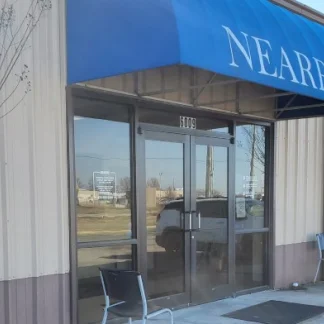United Methodist Behavioral Hospital
United Methodist Behavioral Hospital, located in Jonesboro, Arkansas, is a menta...
Crowley’s Ridge Development Council offers services to men and women seeking support in the Jonesboro, Arkansas area. They offer human resource services, primary care services, and housing services. They also offer alcohol and drug rehab programs.
Crowley’s Ridge Development Council accepts individuals living with a wide variety of health concerns. Their programming is offered on an outpatient basis. Services include primary care, food programs, addiction treatment, transit programs, a prevention program, and dual diagnosis treatment.
Crowley’s Ridge Development Council accepts most insurance plans, including Amerigroup, Anthem, Blue Cross Blue Shield, Aetna, Cigna, ComPsych, Magellan, Kaiser, Beacon, Wellmark, TRICARE, and HCSC. Out of network benefits may vary, so it’s important to verify coverage with your insurance provider prior to starting services.
Contact us for more information: (870) 932-0228

Connect with Crowley's Ridge Development Council by calling their admissions team directly.
(870) 932-0228 Website Get DirectionsThe Commission on Accreditation of Rehabilitation Facilities (CARF) is a non-profit organization that specifically accredits rehab organizations. Founded in 1966, CARF's, mission is to help service providers like rehab facilities maintain high standards of care.
CARF Accreditation: Yes
Research clearly demonstrates that recovery is far more successful and sustainable when loved ones like family members participate in rehab and substance abuse treatment. Genetic factors may be at play when it comes to drug and alcohol addiction, as well as mental health issues. Family dynamics often play a critical role in addiction triggers, and if properly educated, family members can be a strong source of support when it comes to rehabilitation.
Group therapy is any therapeutic work that happens in a group (not one-on-one). There are a number of different group therapy modalities, including support groups, experiential therapy, psycho-education, and more. Group therapy involves treatment as well as processing interaction between group members.
In individual therapy, a patient meets one-on-one with a trained psychologist or counselor. Therapy is a pivotal part of effective substance abuse treatment, as it often covers root causes of addiction, including challenges faced by the patient in their social, family, and work/school life.
Group therapy is any therapeutic work that happens in a group (not one-on-one). There are a number of different group therapy modalities, including support groups, experiential therapy, psycho-education, and more. Group therapy involves treatment as well as processing interaction between group members.
In individual therapy, a patient meets one-on-one with a trained psychologist or counselor. Therapy is a pivotal part of effective substance abuse treatment, as it often covers root causes of addiction, including challenges faced by the patient in their social, family, and work/school life.
In individual therapy, a patient meets one-on-one with a trained psychologist or counselor. Therapy is a pivotal part of effective substance abuse treatment, as it often covers root causes of addiction, including challenges faced by the patient in their social, family, and work/school life.
United Methodist Behavioral Hospital, located in Jonesboro, Arkansas, is a menta...
Preferred Family Healthcare provides behavioral health care and addiction treatm...
Memphis VAMC - Jonesboro OPC is a behavioral healthcare facility in Jonesboro, A...
Northeast Arkansas Treatment offers drug and alcohol treatment to men and women....